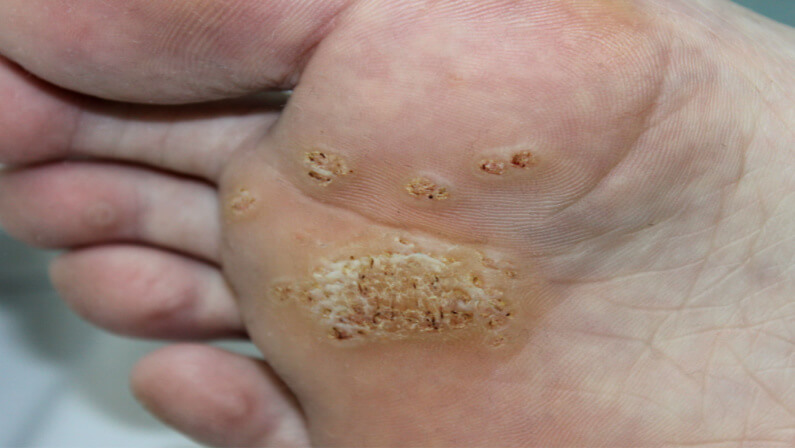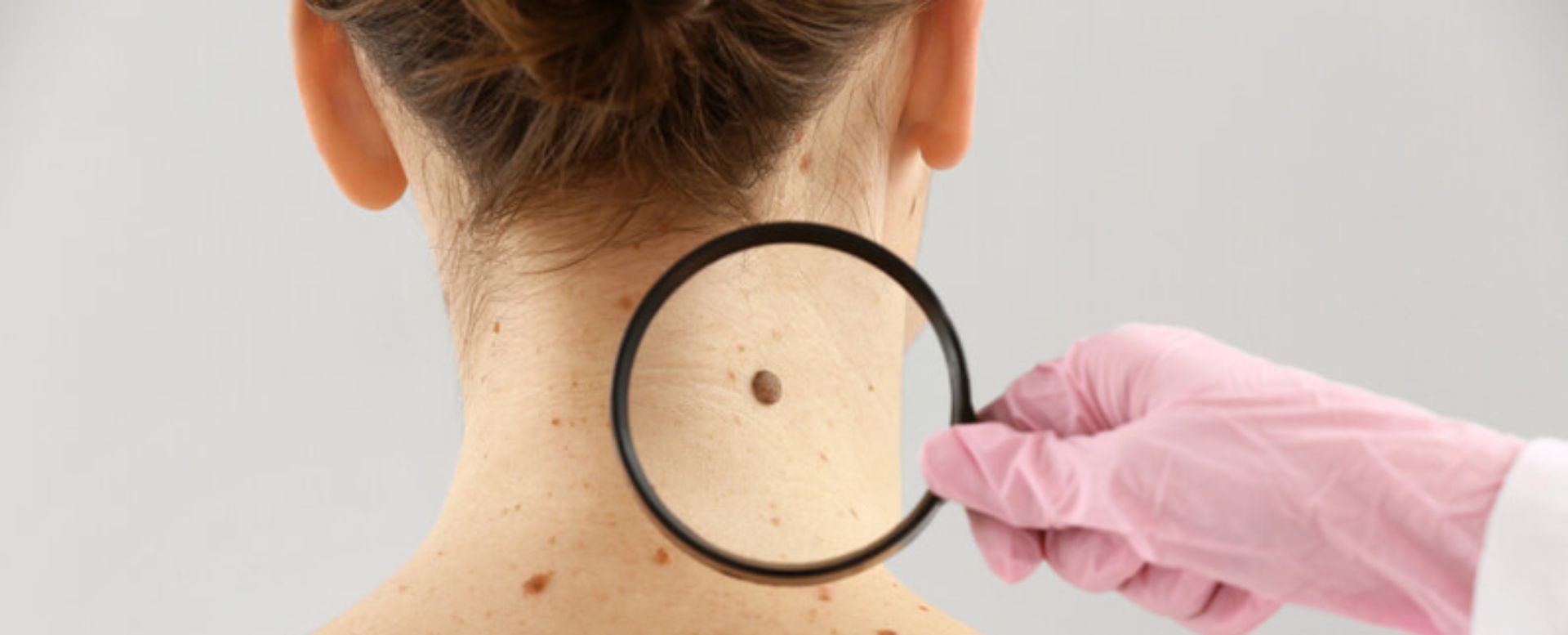If you’ve been dealing with plantar warts, you know how frustrating they can be. Not only are they unsightly, but they can also be quite painful. In this blog post, we will discuss the most effective ways to get rid of plantar warts. We will cover both home treatment and medical procedure options, so you can choose the option that is best for you. Keep reading to learn more!
What are plantar warts?
Plantar warts are small, raised lesions that typically occur on the heels or balls of the feet. They are caused by a virus, and they can be quite painful. If you are dealing with plantar warts, you may be looking for ways to get rid of them. We will discuss the most effective ways to do just that.
What causes plantar warts?
When you come into contact with the virus that causes plantar warts, you may contract the condition. Indirect transmission can occur, for example, while sharing towels or shoes with a person who has a plantar wart. In other cases, the transfer can happen directly if a person contacts another wart. Plantar warts flourish in places or environments with a warm, moist climate.
Specific causes include:
- HPV Virus
- Trauma to the Foot
- Excessive Sweating
- Poor Hygiene Practices
What are the symptoms of plantar warts?
Plantar warts signs and symptoms are:
- A tiny, rough growth on the bottom of the foot, typically at the base of the toes, on the ball of the foot, or on the heel
- The growth may be paler on brown and black skin than on unaffected skin.
- A wart that has turned inward over a skin area is covered by a hard, thickened layer of skin (callus).
- Small occluded blood vessels in the form of black pinpoints, often known as wart seeds.
- Walking or standing can cause pain or soreness.
Plantar warts vs. Calluses
Plantar warts are not the same as calluses. The only difference between the two is that calluses don’t have any black areas. Repeated friction against the skin results in calluses. These are most commonly found on the hands and feet. You can see a raised, white-colored region of skin if you have a callus.
Plantar warts can develop inside a callus. This is because the increased friction that causes the callus increases the likelihood of forming these types of warts.
How are plantar warts diagnosed?
Plantar warts are typically diagnosed by visual inspection. If you are dealing with warts on your feet, your doctor may take a look at them and confirm the diagnosis. In some cases, a doctor may also need to perform a biopsy to confirm that the lesions are indeed plantar warts. Contact Skin Cancer Specialists in Houston for a diagnosis.
How are plantar warts treated?
Here are some ways to treat plantar warts:
Surgical and other procedures
If you are looking for a more aggressive treatment option for plantar warts, your doctor may recommend medical treatment. There are several medical treatments available, including:
Laser therapy
Laser therapy uses high-intensity light to destroy the cells of the wart. This is a relatively new treatment option, and it is not yet clear how effective it is. However, it does not cause any pain or scarring.
Cryotherapy
Cryotherapy uses cold temperatures to destroy the cells of the wart. This is a common treatment option, and it is usually very effective. However, it can cause pain and discomfort.
Surgery
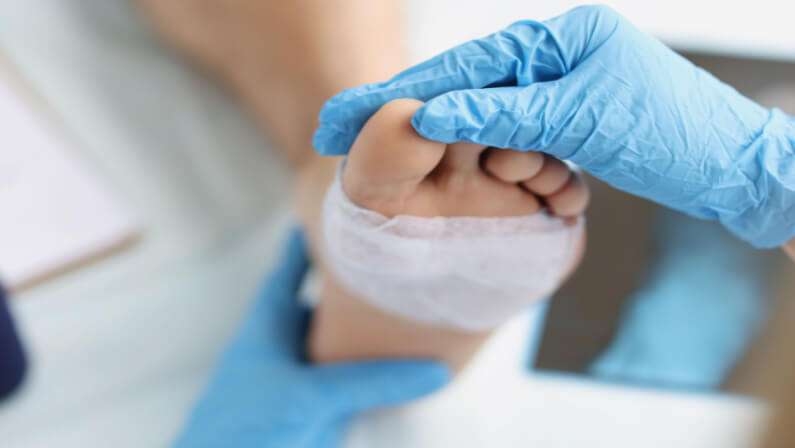
In some cases, surgery may be necessary to remove a large or stubborn wart. This is a relatively invasive procedure, and it can cause scarring.
Blistering medicine
Blistering medicine is a common treatment option for plantar warts. It involves applying a medication to the wart that causes it to blister and peel off. This is a relatively effective treatment, and it does not cause any pain or scarring.
Immunotherapy
Immunotherapy is a treatment option that uses the body’s own immune system to fight the virus that causes plantar warts. This is a relatively new treatment, and it is not yet clear how effective it is. However, it does not cause any pain or scarring.
Vaccine
There is currently no vaccine available for the treatment of plantar warts. However, there are a few vaccines available that can help prevent the virus that causes plantar warts from spreading. If you are looking for remedies to prevent plantar warts from occurring, ask your doctor or skin cancer specialists about getting vaccinated.
Freezing medicine
Freezing medicine is a common treatment option for plantar warts. It involves freezing the wart with a cold substance, such as liquid nitrogen. This treatment is usually very effective, and it does not cause any pain or scarring.
Home Treatment Options
If you are looking for a home treatment option for plantar warts, there are a few things that you can try, such as:
Salicylic acid
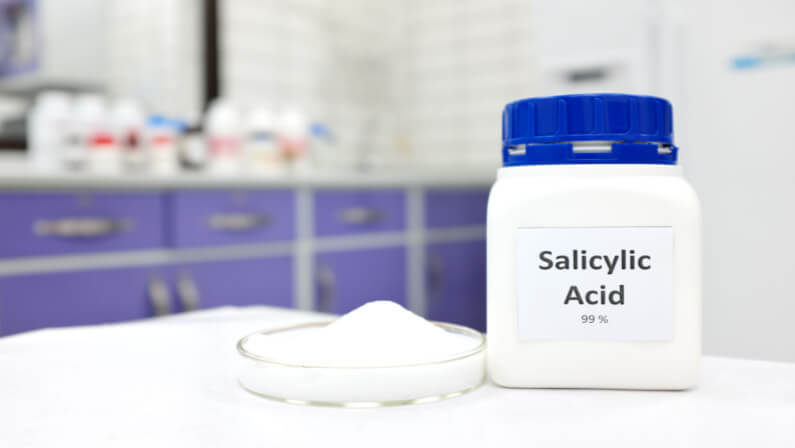
Salicylic acid is a common home treatment option for plantar warts. It involves applying a medication to the wart that causes it to blister and peel off. This is a relatively effective treatment, and it does not cause any pain or scarring.
Duct tape
One of the most popular home remedies is duct tape. Duct tape works by creating a barrier between the wart and the environment. It also removes moisture from the wart, which can help to kill the virus. To use duct tape as a home treatment for plantar warts, follow these steps:
- Cut a piece of duct tape that is big enough to cover the wart
- Stick the duct tape to the wart
- Leave the duct tape on for at least six days
- Remove the duct tape and soak the wart in water for five minutes
- Dry the wart off and reapply the duct tape
Apple Cider Vinegar
Another popular home treatment option is apple cider vinegar. Apple cider vinegar contains acetic acid, which can help to kill the virus that causes plantar warts. To use apple cider vinegar as a home treatment for plantar warts, follow these steps:
- Soak a cotton ball in apple cider vinegar
- Apply the cotton ball to the wart
- Secure with a bandage
- Leave overnight
- Repeat this process every night until the wart disappears
Tea tree oil
Tea tree oil is also a popular home treatment option for plantar warts. It contains antibacterial and antiviral properties, which can help to kill the virus that causes plantar warts. To use tea tree oil as a home treatment for plantar warts, follow these steps:
- Soak a cotton ball in tea tree oil
- Apply the cotton ball to the wart
- Secure with a bandage
- Leave overnight
- Repeat this process every night until the wart disappears
Iodine
Iodine is another home treatment. It contains antibacterial and antiviral properties, which can help to kill the virus that causes plantar warts. To use iodine as a home treatment for plantar warts, follow these steps:
- Soak a cotton ball in iodine
- Apply the cotton ball to the wart
- Secure with a bandage
- Leave overnight
- Repeat this process every night until the wart disappears
Milk thistle
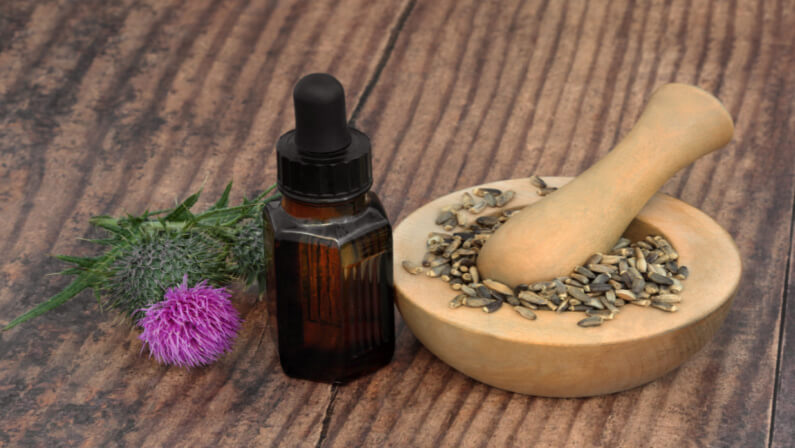
Milk thistle is a natural remedy that contains antioxidants and anti-inflammatory properties. It can help to improve liver function and reduce inflammation. Milk thistle is also a detoxifier, which can help to remove toxins from the body. Some people believe that milk thistle can help to treat plantar warts by boosting the immune system and helping to kill the virus that causes them.
You may have read ways to remove plantar warts at home, however many of these at home remedies are scams and can actually be harmful. Please call us or schedule a consultation right on our website to meet with our team and find out the best treatment for your plantar warts.
Are plantar warts contagious?
Yes, plantar warts are contagious. They are caused by a virus that can be spread through contact with the wart or with objects that have been in contact with it.
Do plantar warts cause pain?
Yes, plantar warts can cause pain. They are caused by a virus that can irritate the skin, which can lead to pain and tenderness.
How long does it take to get rid of a plantar wart?
Depending on the treatment method used, it can take several weeks or months to get rid of a plantar wart.
Who is at risk for plantar warts?
Although the HPV virus is the primary cause of plantar warts, there are other risk factors to take into account. Plantar warts may be more likely to develop on:
People with weakened immune systems
People with weakened immune systems are more likely to develop plantar warts. This is because their immune system is not strong enough to fight off the virus that causes them. People with weakened immune systems can include those who are:
- HIV positive
- Taking immunosuppressive drugs
- Diabetic
- Cancer patients
Children and teens
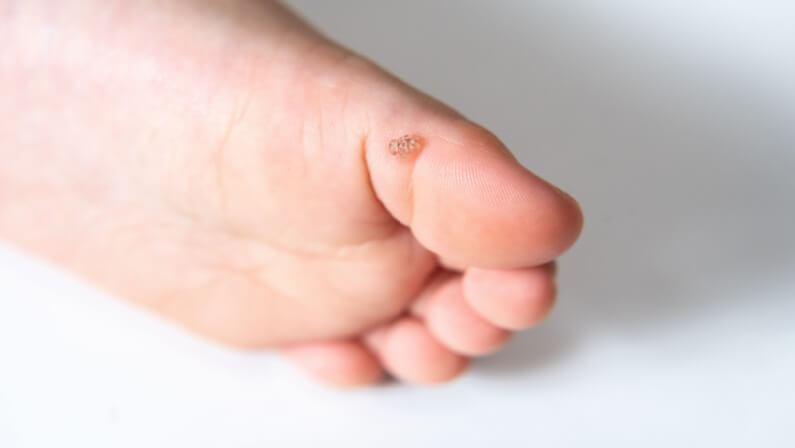
Children and teens are more likely to develop plantar warts because their immune system is not as strong as adults. The HPV virus that causes plantar warts can be harder to fight off for them.
Athletes and people who walk barefoot in public places
Athletes and people who walk barefoot in public places are more likely to develop plantar warts because they are exposed to the HPV virus that causes them. The HPV virus is carried by water and soil, so it can be easily spread through contact with the wart or with objects that have been in contact with the wart.
Someone who has a history of plantar warts
Plantar warts are embedded too deeply in the skin. The wart’s seed is buried deep in the sole of the foot, so even if someone successfully removes the outermost layer, it will likely grow back again.
How can you prevent plantar warts?
Wondering how plantar warts on the feet are treated? Preventive action is the first step.
You can take steps to lessen your risk of getting painful plantar warts, including:
- Don’t walk barefoot in public places.
- Keep your feet dry.
- Use separate towels and nail clippers for each person in the household.
- Use comfortable shoes.
- Wear clean socks, and change them daily.
- Avoid sharing shoes, socks, or towels with another person.
- Notify your doctor or a podiatrist if you have diabetes or a weakened immune system.
Do you have to see a doctor for plantar warts?

Yes, one should see a doctor or a skin cancer specialist for plantar warts. Although there are some home remedies that can be used to treat plantar warts, if the wart does not respond to treatment or if it is causing pain, one should see a doctor. A doctor or specialist can prescribe a more effective treatment method or may need to remove the wart surgically.
Treat Plantar Warts Immediately
Plantar warts are a common problem that can be caused by the HPV virus. They are contagious and can cause pain and discomfort. There are several treatment methods available, but some home remedies may be more effective than others. If you have plantar warts, it is important to see a doctor to get the best possible treatment. Let Skin Cancer Specialists in Texas help you. You can find them at Sugarland, Conroe, Houston, and Katy.

